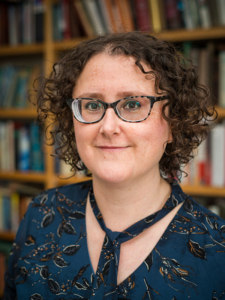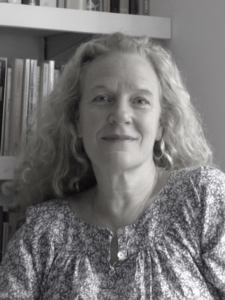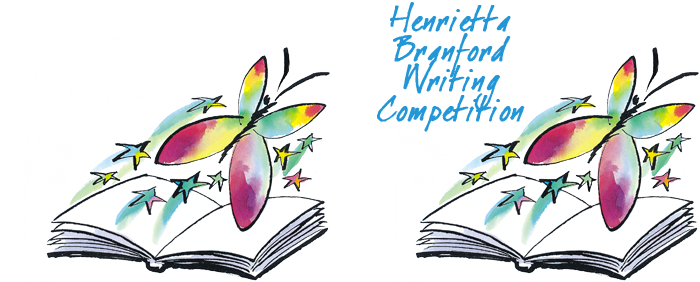Q&A with author Liz Hyder
 Where did the ideas for Bearmouth come from?
Where did the ideas for Bearmouth come from?
The idea originally came from a trip down a mine whilst I was on holiday in North Wales, an area that I knew well from my childhood. It got me thinking about exploitation but also made me wonder if I could set a page-turning story in such a claustrophobic environment too. I wrote the first section quite quickly and then realised I needed to do a LOT more research in order to do the story justice.
As a debut author, what did you find most challenging about writing the book?
Well, Bearmouth is the seventh novel I’ve written but the first to be published. I found it easier than some of the other stories I’ve written, it sort of wrote itself in the end. I could hear Newt’s voice very clearly in my head – the book is told first person by Newt in a made-up dialect that draws from all sorts of places and time periods, bits of Shropshire and Lake District dialect, bits of London slang and, if you look carefully, little nods to Chaucer and Shakespeare. Newt is learning to read and write throughout the book so the hardest thing was getting that voice – and those spellings – back in my head every time I had to take a break from writing it to do other work.
What was the thing you most enjoyed about working with Sarah on the book? Why?
Everything! She’s so much fun to work with, she’s honest and supportive and just utterly brilliant. She’s basically a dream to work with. There’s a reason why she’s a publishing legend! I loved her really practical approach to storytelling – if something isn’t working as well as it can, change it, tweak it, try something else. Nothing is broken, everything can be fixed. It’s hugely empowering.
What was the best bit of advice she gave you?
Ooh, that’s hard. I think probably it was to let emotive scenes speak for themselves, not to overwrite it. There’s one scene in the book that was a bit too over-emotive and she encouraged me to pare it right back and it worked much better, it’s so much more powerful because of that. We called it ‘un-Dickensing’!
What advice would you give to debut authors?
Share your work. Keep writing, keep editing, keep reading but share your work. Find a group of people you trust who will give you constructive and honest feedback. That might be an existing writing group or a bunch of friends but either way, share your work and learn to accept feedback. Your work will be stronger because of it. Also, evaluate your tastes – not just for novels but also for TV, for films, for plays. What did you like about a certain character and why? Why was one story satisfying to you but another wasn’t? The more you do that, the more you’ll know your own tastes and the clearer you’ll be able to see the structure of stories. I’d also say push yourself out of your comfort zone, listen to music you might not otherwise be drawn to, watch an opera if you’ve never watched one, read books from genres you might not have tried. It’s all research!
Q&A with editor Sarah Odedina
 What most excited you about Liz’s manuscript when you first read it?
What most excited you about Liz’s manuscript when you first read it?
The thing that I found most exciting about Liz’s manuscript on first reading it was the powerful voice both of the character Newt and the novel itself. In Bearmouth Liz has created an incredibly strong mix of form and function. The voice of the character which is so unique and special is also the voice of the book and the world that the reader enters from the very first line of the novel. Newt is learning to learn to read and write and as the novel is in the first person Liz cements Newt’s personality in the readers mind by giving Newt such a distinct voice. The spelling and grammar too is that of someone just learning to express themselves in the written form but also reflects the ideas and understanding of an older and wiser person. It’s a tour-de-force. Very rarely does one get to read something that is both so original, so thoroughly thought through and executed in such painstaking detail. It is an arresting voice and a novel that is literally gripping.
What would you say was the main challenge you gave Liz as her editor?
In all honesty I am not sure what I did to challenge Liz. I asked her questions about the world underground and about the relationship between Newt and Devlin which I hope helped her think about the way in which the story developed. I tended to question quite a bit I think and in doing that allowed Liz to think of ways of focusing on the story, the characters and how the reader would receive her wonderful novel.
What would you say are the qualities of Liz’s writing that mark her out as a talent to watch?
Courage. She is absolutely brave in doing something utterly unique. She followed no conventions or idea of genre and fashion. She created a totally wonderful story with brilliant characters driven by her own brave imagination that allowed her to follow that idea and take it absolutely all the way to the end.
What do you think is the most effective scene in Bearmouth and why?
For me the entire first half of the novel is a brilliantly tense and effective piece of writing. The tension grows and grows and grows as we worry for all the characters who are clearly all in such jeopardy – some more than others. Then comes a truly frightening scene where Newt is about to be raped by a very predatory character and in that moment the power balance of the characters in the novel changes. I suspect that for me this is the most effective point in the book, if I have to choose just one, as it is so pivotal.
What made you want to be an editor, and what do you enjoy most in your job?
Before I became an editor I had been a rights person for a few years selling both adult and children’s books around the world. I was incredibly lucky to be given a job at Bloomsbury running the children’s department without any practical experience of editing but somehow I managed to persuade the directors of Bloomsbury that I could do it. Liz Calder, who had also come to editing from a different publishing discipline, had faith in me and that really worked in my favour. Due to my lack of the formal apprenticeship and training my way of working is quite intuitive. I read a book and then think about it and wonder what I think could help make the story work better, bring the characters alive to the reader more, help build tension and from there I start taking to the author and sharing my thoughts. I find a lot is worked out in conversation and feel it is the best way to help an author work out what they want to write as well as pinpoint the areas that are not quite coming alive for the reader.
The most enjoyable part of my job is without a doubt when a book goes out into the world and readers start to respond to it and I feel I have been part of a process that brings joy to people. I am first and foremost a lover of books and stories and the joy I get from reading is one I know I share with so very many other people. When I know that a book is igniting that pleasure and satisfaction in readers I feel completely satisfied with my job!
Bearmouth is published by Pushkin Children’s Books, 978-1782692430, £7.99 pbk.

 Where did the ideas for Bearmouth come from?
Where did the ideas for Bearmouth come from? What most excited you about Liz’s manuscript when you first read it?
What most excited you about Liz’s manuscript when you first read it?